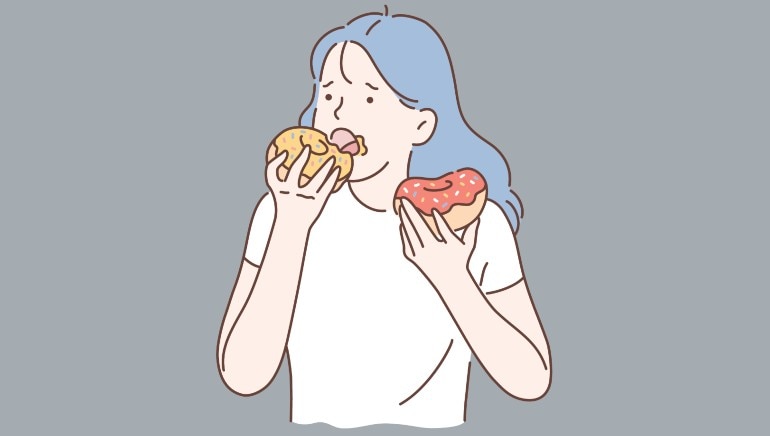Stress eating is not a one-time phenomenon; for most of us, it happens time and again. If you’re someone who finds yourself eating every single time you’ve had a bad day, it’s time to get rid of the habit. Here’s how
You wake up every morning, and decide to follow a healthy lifestyle going forward. There’s a list of all the nutritious foods you’re going to consume, an exercise plan is ready, and you’re raring to go. Unfortunately, the day turns out to be emotionally challenging. Although you manage to stick through your plan until evening, you end up binging on junk food or the most sinful sweet treats. Why may you ask? Well, that’s because stress got the better of you. Ladies, you are not alone; this happens to a lot of us.
Unfortunately, when stress levels rise, we think of nothing but food to provide us with comfort. That’s where the problem lies, because it gives rise to stress or emotional eating, which eventually turns into a habit. But here’s the good news: it is possible to get rid of it!
{{{htmlData}}}
But before we get down to that, let’s understand how the mood-food-weight cycle works.
The relationship between your mood, food, and weight
As mentioned above, emotional or stress eating is all about “eating your emotions”. What we mean by this is that whenever stress strikes, or you’re filled with any other emotion like anger, boredom or even sadness, you decide to make food your ally. The critical part is it’s all unhealthy food, and that means your weight loss goals are bound to go off track.
In most cases, food serves as a distraction. Instead of tackling a situation and processing your emotions around it, you decide to follow an escapist approach by eating large amounts of food. Even if you feel good about it in the beginning, the emotions return, and you are riddled with guilt. So you see, emotions overpower your life in more ways than one: you get stressed, you eat; you eat, and then feel guilty; and then again you eat more.
Tips to cope with stress eating
Worry not, ladies. It’s never too late; you can make slow and steady changes, and it’s going to help you in the long run.
1. Keep a food diary: It might sound odd, but this is the first step to combat stress eating. So, keep a diary and make note of what you eat, how much you eat, when you eat, what kind of emotions do you have while eating, and how hungry you are. This might be helpful in revealing certain patterns, and help you take action.
2. Keep a check on your stress: If stress is an important reason behind your emotional eating patterns, then try to keep it in check by practising yoga, meditation or deep breathing.
You need to pay attention to eating disorders that can impact your health significantly. Image courtesy: Shutterstock
3. Have a hunger reality check every few hours: Yes yes, we know it sounds bizarre. But keep checking in on yourself if your hunger is physical or emotional? Say if you ate a few hours ago, you might not really be hungry. It’s your emotions urging you to reach out for that bar of chocolate.
Select Topics of your interest and let us customize your feed.
PERSONALISE NOW
4. Tackle boredom: It might also be possible that you end up eating large amounts due to boredom. So instead of using food as a distraction, try to inculcate habits like exercising, listening to music, reading a book or even meeting a friend.
5. Remove all the junk food from your house: We know it sounds like an extreme step, but it is important to tackle stress eating. If you think it becomes easier for you to eat junk food when you are filled with emotions, then why not remove all of that food? You can always go back to grocery shopping, when your emotions are in check.
6. Get professional help: If you think none of these strategies work, then the problem might be more serious than you think. You can consult a medical professional and take requisite action.

